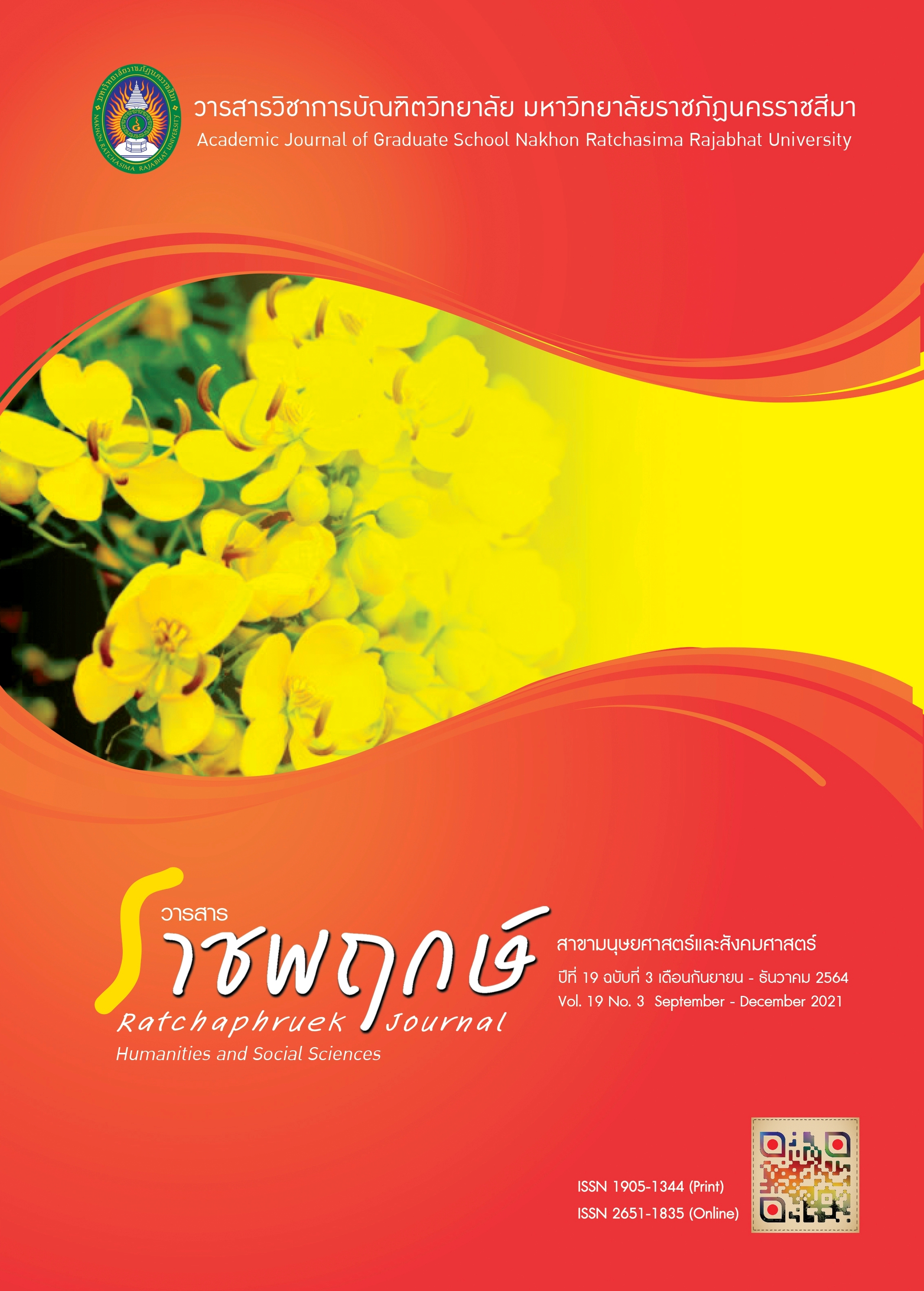The Effect of Teaching Model for Hot Conceptual Change (TMHCC) for Promoting 11th Grade Students’ Argumentation Skills and Conceptual Chemistry on Chemical Equilibrium -
Main Article Content
Abstract
The purposes of this research wereto study 1) the students’ conceptual understanding of chemical equilibrium after learning with a teaching for conceptual change (TMHCC) of Kural and Kocakulah, and 2) the students’ argumentation skills after learning with a teaching for conceptual change (TMHCC) of Kural and Kocakulah. The target group was 39 of 11-grade students in a large sizeschool. The research tools were 1) ninelesson plans for teaching conceptual change of Kural and Kocakulah with 14 hours of teaching time, and 2) ninemainconcepts of two tires conceptual test on chemical equilibrium; Part 1: a four- multiple choices, and Part 2: a rationale writing, and 3) two issues of open-ended argumentation skills test, 6 questions each, totally 12 questions. The data analysis statistics were mean, standard deviation and percentage.
The research results revealed that 1) most students hold conceptual understanding of Sound Understanding (SU = 41.60%) and Partial Understanding (PU = 48.72%) and some hold PU with Specific Alternative Conception (PUSAC = 9.69), 2) The students had post-average score on argument skills higher than the pre-average score in all areas and most of them were at level 3 of argumentation skills, they could identify only 3 out of 6 elements of argumentation skills.
Article Details
References
กรุงเทพฯ: กระทรวงศึกษาธิการ.
กฤษฎา ทองประไพ. (2559). การพัฒนาทักษะการโต้แย้งของนักเรียนชั้นมัธยมศึกษาปีที่ 2 ในหน่วย
การเรียนรู้เรื่อง อาหารกับการดำรงชีวิต โดยการจัดการเรียนรู้โดยใช้ประเด็นทางสังคมที่
เกี่ยวเนื่องกับวิทยาศาสตร์เป็นฐาน. วารสารหน่วยวิจัยวิทยาศาสตร์ เทคโนโลยี และ
สิ่งแวดล้อมเพื่อการเรียนรู้, 7(1), น. 48-61
พัชรี ร่มพยอม วิชัยดิษฐ์. (2558). ธรรมชาติของวิชาเคมี และการจัดการเรียนการสอนให้สอดคล้อง
กับ ธรรมชาติของวิชา Nature of Chemistry and Performing an Instruction to be
Consistent with Its Nature. วารสารารสารวิทยาศาสตร์ มศว , 31(2), น. 189-190
ภัชรภร ชัยประเสริฐ. (2062). ผลการจัดการเรียนรู้โดยใช้โมเดลการได้มาซึ่งมโนทัศน์ร่วมกับคำถาม
ระดับสูงที่มีต่อมโนทัศน์ทางเคมีและความสามารถในการวิเคราะห์ของนิสิตเอกการสอนเคมี.
วารสารศึกศาสตร์ มหาวิทยาลัยบูรพา, 30(3), น. 96-112
อานุภาพ พ่วงสมจิตร. (2562). การพัฒนาทักษะการอภิปรายโต้แย้ง เรื่อง สารชีวโมเลกุล ของ
นักเรียนชั้นมัธยมศึกษาปีที่ 4 ผ่านการจัดการเรียนรู้โดยบริบทเป็นฐาน. วารสารศึกษาศาสตร์
ปริทัศน์, 34(3), น. 96
Calik, M. & Ayas, A. (2005). A comparison of level of understanding of eighthgrade
students and science student teachers related to selected chemistry
concepts. Journal of Research in Science Teaching, 42(6), pp. 638-667.
Hewson, P. W. & Hewson, M. G. B. (1984). The role of conceptual conflict in conceptual
change and the design of science instruction. Instructional Science, 13(1), pp. 1-13.
Kural, M. & Kocakulah, S. M. (2016). Teaching for hot conceptual change: towards a new
model, beyond the cold and warm ones. European Journal of Education Studies,
8(2), pp. 1-40.
Lin and Mintzes. (2010). Learning argumentation skills through instruction in socio
scientific issues: The effect of ability level. International Journal of Mathematics,
Science & Technology Education, 8, pp. 1005
Nakhleh, B. M. (1992). Thy some students don’t learn chemistry. Journal of Chemical
Education, 69(3), pp.191-196.
Osborne, J., MacPherson, A., Patterson, A. and Szu, E. (2012). Introduction of
argumentation. In M. S. Khine, (Ed), Perspective on scientific argumentation:
Threory, practice and research. Dordrecht; New York: Springer.
Ultay, N. & Calik, M. (2016). A comparison of different teaching designs of ‘acids and
bases’ subject. Eurasia Journal of Mathematics, Science & Technology Education,
12(1), pp. 57-86.


